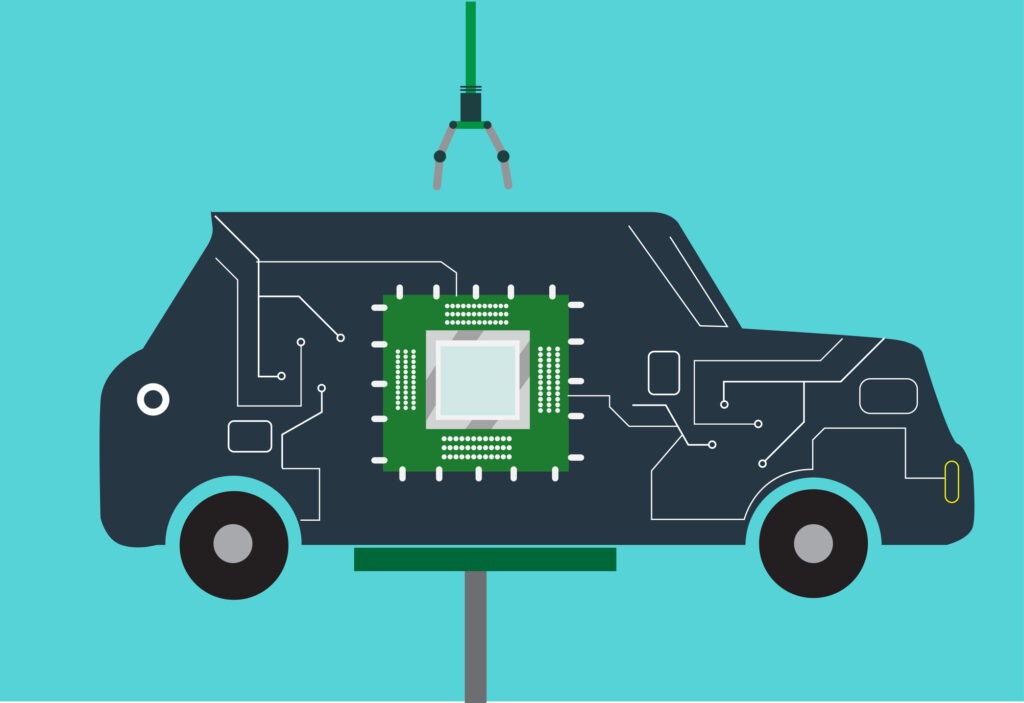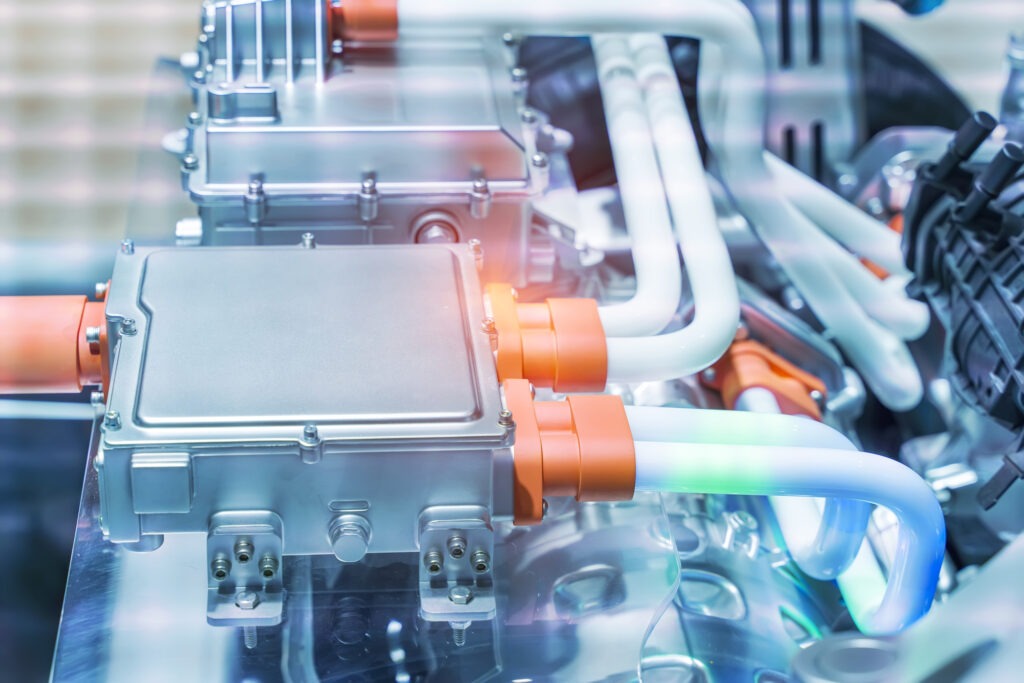What does artificial intelligence mean for automotive retail?
01 September 2023

With artificial intelligence (AI) advancing rapidly, many industries are preparing for development and disruption. Autovista24 editor Tom Geggus asks what this latest technological phenomenon means for automotive retail.
More than a century’s worth of steady progress within the automotive industry has now given way to a tidal wave of transformative technologies. The likes of zero-emission mobility, connected cars, and autonomous vehicles look set to redefine transportation.
Now the automotive industry is facing the world’s latest technological sensation, artificial intelligence. Among the seemingly endless applications, retail represents a plethora of potential opportunities. AI can answer complex customer questions, write seller notes, personalise and automate marketing content, as well as handling leads, bookings, and stock orders.
Sue Robinson, chief executive for the National Franchised Dealers Association (NFDA) told Autovista24 that ‘AI is gradually becoming more and more accepted within the industry to support dealers and drive efficiency. This can be as simple as generic admin tasks but can, and are, becoming increasingly more sophisticated as computers adapt to patterns and algorithms.’
Talking AI
Peter Byrdal, board member for the Alliance of European Car Dealers and Repairers (AECDR), told Autovista24 that while AI is developing rapidly, its deployment within the automotive industry is not a new phenomenon. Earlier iterations of automated systems, chatbots, have been answering common customer questions with predefined answers for some time.
But as the technology advances, so will the capabilities of these tools. Large language models, like ChatGPT, are now able to take simple questions and provide exceptionally detailed answers. This development could help transform the formulaic feedback currently provided by chatbots in automotive retail into well-informed discussions.
‘I think that what we will see in the future, is that a specific vehicle’s full manual could be uploaded, which would provide much more advanced and comprehensive responses,’ Byrdal said. Making large amounts of data easy to navigate and access would also benefit customer service departments, allowing them to quickly source required information.
However, Byrdal emphasised that this progress would not mean the removal of real people from automotive processes. For example, while chatbots can be useful, customers will want to have absolute confidence in the answers they are given. This is particularly important in the world of online sales, where consumers can source huge amounts of information independently, but may then look for human affirmation when it comes to any final decision.
Working relationship
Dirk van Meir, vice president and communications director for the European Association of Independent Vehicle Traders (EAIVT), recognised the advance of AI but told Autovista24 that, ‘car trading is people’s business.’
He emphasised how automotive sales rely on one-on-one contact, building personal relationships and establishing trust. For such a large and important transaction, customers also want to see and experience the car for themselves, instead of relying solely on information sourced online. However, Van Meir did acknowledge the support AI could offer humans.
‘One does not have to replace the other,’ Van Meir said. ‘Maybe they can find a way of co-existing, the AI on the one hand and the real person forming connections with suppliers and final customers on the other hand.’ So, instead of AI taking the place of salespeople, it could become a tool industry professionals use to better understand their customers, cars, and marketplace.
Computerised capabilities
As AI advancement rushes forward, predictions of the technology’s future capabilities grow ever more remarkable. Phyron CEO Johan Sundstrand recently commented that artificial intelligence could be selling cars as effectively as humans come 2025.
Speaking with Autovista24 he outlined the many developmental waves the industry has seen, and how the next one will be driven by AI and automation. ‘It will scale very, very, very fast,’ he said. ‘Even technologies we see today that are still experimental, in a few years from now they will become standard.’
While Sundstrand highlighted the many benefits AI has to offer, such as enhanced efficiency and personalisation, he also recognised the ongoing need for humans. ‘There will definitely be some sort of role for human interaction, to close the deal and to build and nurture a relationship,’ he said.
Considering automotive manufacturing, he illustrated how cars were once effectively built by hand, but now people and robots work seamlessly together on production lines. The same is likely to be true of the retail process, with salespeople and AI working in tandem to ensure a customer drives away in the right car, via the best purchasing method and backed by a sound service agreement.
As an automated video producer and distributor, Phyron demonstrates just how far AI has already advanced when it comes to marketing. Visual elements are now a cornerstone of automotive retail, or as Sundstrand stated, ‘the platforms are screaming for video.’
Looking at social media and advertising sites, static pictures can no longer be expected to engage the audience so well. While video is a far more effective tool for connecting potential customers with cars, the medium requires a lot of effort, with shooting, voicing, and editing taking up no small amount of time. Enter automation and artificial intelligence.
Equipped with data from a retailer or car brand, key product details and at least three images, Phyron can render advertising videos in roughly 10 minutes. Special effects, shadows and overlays can even be added during this process alongside relevant offers and branding. But again, as this system progresses, the output will only improve.
Data determined
Byrdal pointed out that AI stands to influence more than sales, however, with predictive servicing and maintenance a primary example. At present, no matter the powertrain type, a vehicle owner should adhere to a set servicing schedule.
But new vehicles generate vast amounts of data, from distance driven to acceleration and breaking. This means it would be possible for AI to draw up accurate timings for servicing and maintenance based on real-world requirements. This same approach could allow service providers to automatically generate optimal stock lists and order parts in advance to meet upcoming demand.
While developments like these appear promising, Byrdal recognised one important caveat, namely all the data required to power such AI systems. Cross-industry cooperation would be essential, with manufacturers, retailers and service providers needing to work closely together.
These parties would need to collect data after gaining user approval, establish usage agreements and comply with all the necessary regulations. Byrdal explained that for this to be achievable, automotive retailers first need confirmation that accessing this kind of data will be regulated on a European level, something which is currently far from certain.
There is also the immediate hurdle of securing enough data and technological experts to set up such AI systems in the first place. Without these crucial elements, it is far more likely big technology companies might end up filling the void.
Sundstrand identified how the quality of the data being used must be extremely high. Poor data input results in incorrect decision-making from machines. Alongside this, ethical considerations must be adhered to, to ensure data privacy. Human-AI collaboration will also need to be carefully cultivated. This means training on how to use the technology would be a good starting point for many people.
‘AI has the unique potential to transform the automotive retail industry, making operations more efficient, in turn reducing overheads, and enhancing the customer experience,’ Robinson said. ‘It is important, however, that dealers take into consideration the human cost of these changes and privacy (GDPR) regulations that may be affected.’
So what does AI mean for automotive retail? The technology stands to enhance the process of selling vehicles, with greater efficiency, access to information and personalisation. However, the construction of such systems must be carried out with the right data and processes. Given this, artifical intelligence will be a powerful tool for automotive retail, with salespeople continuing to provide a human touch.



